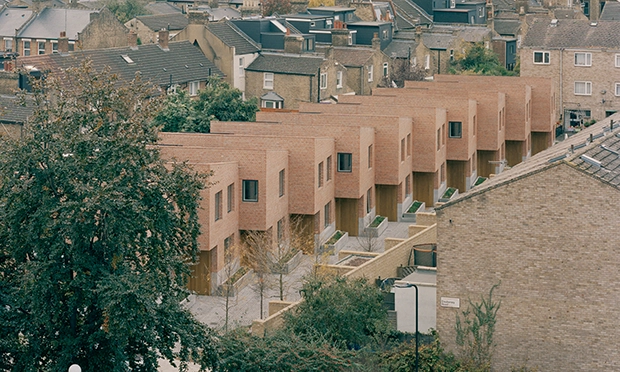Hackney Council ‘delighted’ after winning planning award for its low carbon guide

Chowdhury Walk. Photograph: courtesy RIBA
Hackney Council says it is “delighted” about the borough’s win for its sustainable planning programme at the recent Planning Awards 2024.
The Low Carbon Development Toolkit, a collaborative effort led by Hackney in partnership with other London boroughs and London Councils, was awarded the prize for ‘planning for the natural environment’.
The toolkit is a series of documents aimed at supporting planning teams throughout the capital to improve carbon outcomes for the built environment.
It contains guidance for policy, sustainability and development management officers in an effort to bridge the gap between planners and evolving sustainability projects across London.
In a statement to the Citizen, a council spokesperson said: “We’re delighted that our Low Carbon Development Toolkit has been recognised for helping planners to address the impact of climate change.
“By simplifying complex issues and providing practical guidance, it is designed to help London local authorities and borough officers embed sustainable approaches into planning processes and decision making, supporting the delivery of more low-carbon buildings and the reduction of the city’s carbon emissions.”
The toolkit, launched in a cross-council climate programme in November last year, covers 13 themes for planners to use, including how to move from low carbon to zero carbon, pre-application checklists, in-house sustainability questionnaires, and viability costs.
“It’s part of our wider commitment to building a greener, healthier Hackney, which we’re proud to be sharing with other London planning teams,” the spokesperson added.
“The toolkit will help Hackney’s planning team to more effectively assess future planning applications for developments like Woodberry Down, develop stronger climate change policies, and encourage better understanding of the circular economy in the built environment.”
Residential and commercial buildings contribute around 25 per cent of the UK’s annual greenhouse gas emissions.
The UK Green Building Council estimates that 20 per cent of these come from embodied carbon over the entire lifecyle of a building, including refurbishment.
The government’s net zero strategy, ‘Build Back Greener’, commits it to reducing emissions by 100 per cent by 2050.
